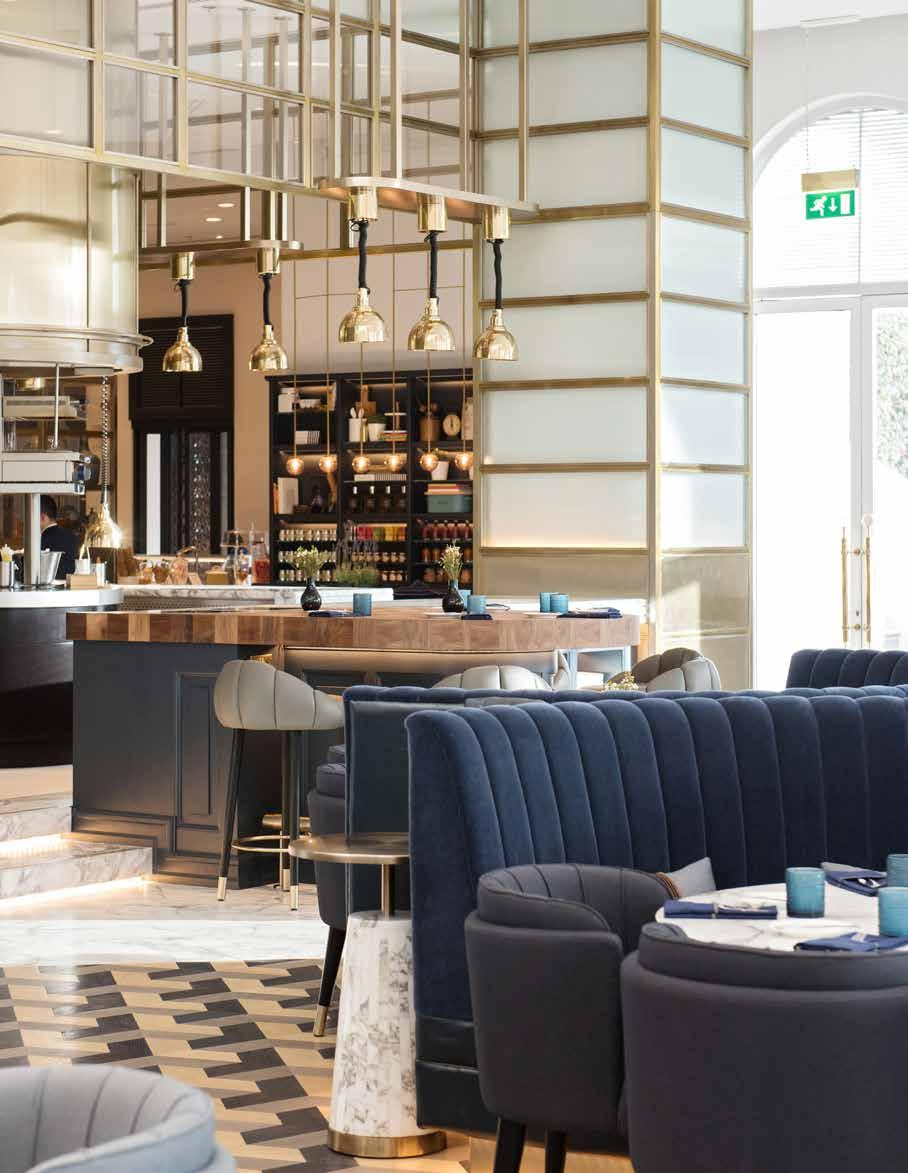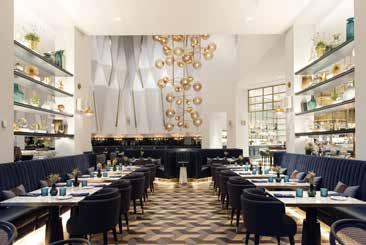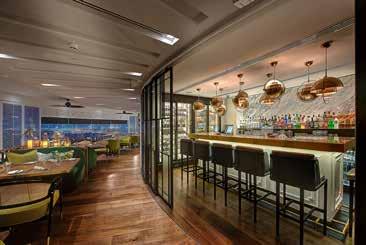
4 minute read
Cristina Wakamatsu
from Transcending Luxury
by design et al
DESIGN DIRECTOR FOR ARCHITECTURE LW DESIGN
Having graduated in Brazil, Cristina Wakamatsu’s career began in Japan where she developed her skills on the efficient use of resources and attention to detail. With a 20 year long career, Cristina has since worked in Milan, London and Dubai along with renowned European architecture practices. Cristina now works with LW Design who have established a worldwide presence in recent years, with a large number of impressive, award-winning projects coming out of our offices in Dubai, Hong Kong and São Paulo.

What are you currently working on? Projects are varied in terms of typology and geographical location. Hence, I would highlight a high-end residential tower in Brazil, a luxury private villa in Dubai, a 5-star resort in Montenegro, as well as a residential and hospitality complex in the MENA Region.
How would you describe your work/design style/ethos? Contemporary style, which I trust is a given by my education in Brazil and – no doubt - the experience working with my partners, all North-European designers. In addition, comes the attention to detail from the learnings working in Japan at the beginning of my career, and to the same extend, design bespoke to Client needs and culture.
What led you to this career path? Working with sophisticate organizations’ design aspirations requires not only a constant search for balance between art and technology, but also a design approach in line with a sustainable vision for the future. In summary, the challenge of creating with purpose.
Please describe the project you are most proud of to date, with reasons why this was a success? City Walk High Street, in Dubai, is the project that I am most proud of to date due to its impact on the market, redefining people’s perspective regarding the urban environment in the Region. To begin with, the development compromises a mixeduse district publicly recognized for its elegant, contemporary design. Therefore, all disciplines, including architecture, urban design, landscape, interior design, lighting and signage, were involved at the same time seeking for a unique language throughout the project.
Please describe a highlight of your career to date. Winning the design competition for City Walk High Street was as rewarding as accomplishing full design and documentation for thirteen buildings, as well as the entire public realm, in only seven months. In doing so, being able to see its Boulevard occupied by residents and visitors is very satisfying.
How did achieving this make you feel? Really proud, specially knowing that few architects have the chance to lead the design of such prominent project, and see it built, exactly as drawn, in such a short time and so early on their career.

What inspires you? I would start with daily city-life, either in the city I leave – São Paulo, or cities that I visit for business or as a tourist. At home, or during those trips, not just I get inspiration from work by architects of many styles and ideas, but I have the chance to know better my own country or make contact with different cultures, enhancing on me sympathy and compassion, qualities I believe the world is lacking nowadays.
What motivates you? To see how design can improve someone’s life.
Where in the world do you like to retreat to? To the Minas Gerais State hills in Brazil.
Where and how do you find support? Professionally, I find support in my day-to-day collaboration with my partners at LW Design.
Where do you find comfort? At home in Brazil.
Has the recent global pandemic changed the way in which you work? We have to be more assertive, efficient so we don’t waste resources. In this way, I am delegating even more to the team, on a much more collaborative way based on comprehensive tasks by each member, and forthright meetings and workshops. Strangely enough, that applies to clients as well.
How will it change the global design sector? I believe Clients are more-and-more looking after sustainable approach to their business. Meanwhile, designers are learning how to provide solutions that perform without stressing our society or our natural environment.
What are your thoughts on the future of design? I think design will need to turn its focus to human needs on a broader sense, including its significance to the entire community, from the home, the street level, to the scale of a country or region. I summary, design shall be more meaningful to people, on every detail.
What would be your key piece of advice for emerging designers right now? Be passionate about what you do. Travel, visit places, see the world. It will open up your various way of seeing things.











